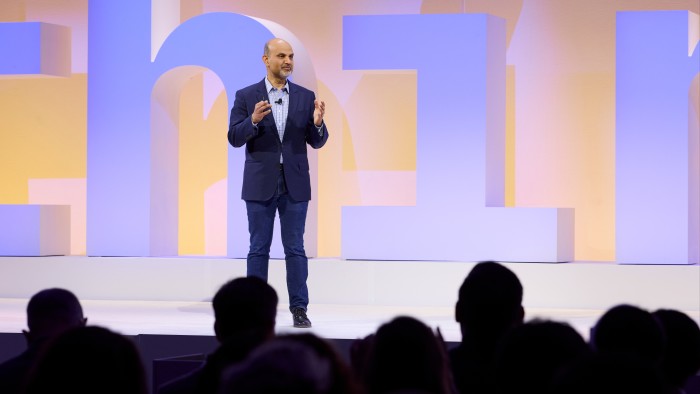Stay informed with free updates
Simply sign up to the Accounting & Consulting services myFT Digest — delivered directly to your inbox.
Consultancies must reinvent themselves as software companies if they are to survive in the age of artificial intelligence, according to the head of IBM Consulting.
A rethink was needed because of new competition from technology companies and scepticism from clients, Mohamad Ali told the Financial Times in an interview, as questions swirl in the industry about the opportunities and threats posed by AI.
Ali returned to IBM two years ago with a brief to turn its consulting arm into a “service as a software” business and build thousands of digital “agents” that perform tasks with minimal human oversight, first inside the company and then for clients.
“The future of consulting is going to be a hybrid of people plus software — like, a lot of software,” Ali said. “And I think that consulting companies that can’t do that are going to fall away.”
Traditionally, consultants have helped companies become more efficient by sketching out a restructuring plan or implementing software created by others or have come in to provide specific expertise, such as cyber security advice.
With the opportunity for many tasks to be taken over by semi-autonomous agents, the challenge for the consulting industry is when to build such tools themselves and how to make potentially thousands of different agents work together. Consulting firms from Deloitte and KPMG to McKinsey are racing to build out agentic AI platforms, promising a menu of tools they can implement for clients.
“The software companies are going to get into this business as well, and are going to be delivering digitally through agents,” said Ali. “So our strategy here is to run as fast as possible to deliver as much of this through these agents as possible and convert a big part of our business into a software business.”
Consulting firms are hoping AI implementation will pull the industry out of a period of sluggish growth, which has now lasted for more than two years. Consulting has been the weakest of IBM’s three main divisions this year, posting no revenue growth compared with 5 per cent for hardware and 9 per cent for software.
Ali in part blames companies’ in-house spending on AI, along with an uncertain economy and belt-tightening by the US government, for crimping consulting demand. “Companies are spending a ton of money [to] figure out how to build this up,” he said.
Companies would ultimately find they needed consulting firms to help implement their AI strategies, Ali predicted, citing an MIT study that found 95 per cent of generative AI projects had failed to deliver any financial returns.
Nonetheless, some corporate leaders have expressed scepticism that consultants will add value over doing it in-house, and investors are also nervous about the future.
Shares in Accenture, an IBM rival, are down 30 per cent this year in part because of investor concerns about the impact of AI on its managed services business, to which clients outsource functions such as call centres. Accenture chief executive Julie Sweet said last month that the company was revamping its workforce for the age of AI and would cut staff who could not get the skills needed.
Recommended
Ali first worked for IBM from 1996 to 2009 where he oversaw the growth of its analytics software business. He was also head of strategy at Hewlett-Packard, chief executive of a technology research group and a cloud software company before returning to IBM as chief operating officer of the consulting business in 2023. He has run the division since July last year.
Ali said IBM Consulting was pitching agentic AI as a step-change in corporate efficiency, citing IBM’s own cost-cutting efforts, which yielded $3.5bn in savings over two years by deploying automation across almost 500 separate corporate functions.
The large language models themselves were becoming a commodity, Ali said. “It’s less about the LLMs and now about the applications that you’re building on top,” he said.


